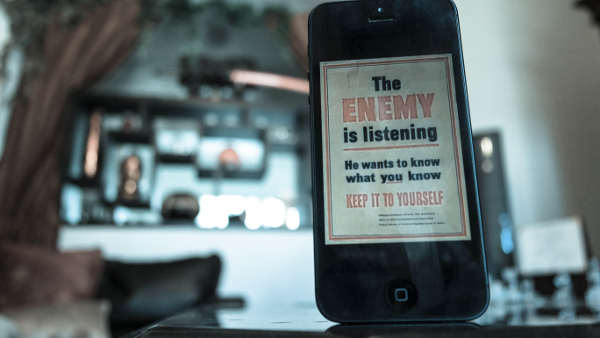 OPSEC is necessary if you and your family are preppers, but how do you protect your information and still function? How much OPSEC is good OPSEC?
OPSEC is necessary if you and your family are preppers, but how do you protect your information and still function? How much OPSEC is good OPSEC?
As I wrote in Is Big Brother spying on your computer – with your own cell phone? (which is pretty scary), there are certain precautions that you have to take if you want to live in the digital age. This isn’t limited to all things digital, however.
I’ve seen a lot of extremes when it comes to OPSEC (OPerations SECurity) with preppers, just as I’ve seen in government operations. They either hide everything or they hide nothing. It’s always been this way.
I’ve helped the DoD and other agencies with their OPSEC operations and training for many years in many countries and under many commands. Just like preppers, very few people in the military really know about OPSEC and how to work it into their operations and their personal life.
I started this site pretty heavy into writing a lot of in-depth articles on OPSEC but at that time, I was looking to write a blog about advanced prepping techniques. As I started listening to you guys out there, I quickly realized that 99.9% of my readers – and of preppers in general – need basic information on prepping because most of the sites out there are crap and even ex-military people aren’t usually trained in things like propper OPSEC procedures and plans unless they’re in a certain specialty. You can’t classify everything as a secret and expect to operate.
Proper OPSEC procedures in a military, corporate, or prepper environment requires balance with operational needs.
The first time you really get into this stuff, it can appear intimidating so I’m just going to stay really basic. There is a LOT more information out there about protecting your ops, personnel (family), and gear (including on this site) if you want to go through it.
I’ll go over the basics of OPSEC, give a few examples to get your mind on the right track, and then explain how to balance this stuff with respect to prepping in general.
If you want to get a VERY thorough understanding of how to make an OPSEC plan and all the details of how to protect your assets by varying your schedules and reducing your indicators etc, you can search through my site with the search form at the top or just go ahead and get the Marine bible on Counterintelligence. It’s 287 pages of well-written (and EXTREMELY thorough) stuff. One thing about the Marines, their Intelligence manuals are top-knotch.
So just what is OPSEC?
Essentially, Operations Security is what you do (or don’t do) that protects information from an adversary about you, your stuff, and what you’re doing. An adversary could be a thief, a bad guy that wants to kidnap or hurt you or your family, or a combatant enemy in a war zone, bad neighborhood, or after SHTF.
Proper OPSEC planning should support operations, not hinder them.
What you have to protect isn’t just the people and the stuff that you have, you have to protect or control what are called indicators. An indicator is something that you do or say, or don’t do or say, that gives them a clue about some kind of vulnerability that you have, which puts you at risk. You may not be able to 100% protect what you have, but by controlling your indicators, in most cases you don’t have to.
Here are three examples of bad OPSEC to give you a better idea of how it pertains to everyday life:
- You pull out your wallet in a crowded bar and flash a stack of $100 bills as you’re paying for your drink, anyone who sees it knows that you have it.
- You happen to mention to the bartender, in full earshot of others, that you just sold your old car on the way to the bar and the guy paid you $5,000 cash that you have to put into the bank when you leave.
- You walk into the bar as you normally do but this time you buy a round for everyone there.
In all these cases, you’ve given indicators to a potential thief (your current adversary). If any of those people have the desire and the capability (or think they do), you’re at a higher risk of being robbed.
In example #1, flashing the cash is a dead giveaway that not only you have cash, you’re not very security-conscious. This makes you appear extremely vulnerable.
In example #2, mentioning that you just received $5k and still need to take it to the bank may give someone the idea that you could have cash on you. They may not know if it’s in your wallet, your wife’s purse, your car, or somewhere else, but you’ve again given them an indicator that may perk their interest. In some cases, they’ll increase their collection effort to try and ascertain where you have the money. That may be by listening into your conversations or just straight-up putting a gun to your head when you go to the bathroom.
In example #3, buying a round of drinks for everyone is out of the ordinary. Most people don’t do this. Even if you don’t have any cash at all and you’re putting it on a tab that you’ll pay later, a potential thief may not have the full picture and decide that you’re either paying cash for the drinks or that a guy who can afford that probably has cash on him anyway.
What I just mentioned above is part of what they call PERSEC, or PERsonal SECurity. By not protecting information about your cash, or even by giving the impression that you have cash when you don’t, you presented a vulnerability that they might exploit.
So why do you have to balance OPSEC when prepping?
In real life, you can’t protect or control indicators all the time. You have to maintain some sort of balance of protecting things with staying flexible with what you’re doing, especially if you’re in a family or a trusted group.
For example, the safest move in the 3 scenarios above wouldn’t just be to not make those mistakes, it would be to not be in the bar in the first place. You should have stayed home in that case. You also should have had the money transferred into your bank account directly.
This may be the safest move, but is it realistic? Are you going to stop going to bars, grocery stores, houses of friends, or anywhere else that a potential thief may be? No. What you need to do is look at what vulnerabilities that you have, and what risks you have to some attempt by an adversary.
Let’s look at something a bit more prepper-centric: your bug out vehicle.
Here’s a quick scenario:
You see someone pull into their driveway with one of those really nice Harley-Davidson F150 pickup trucks. They park the truck in their driveway instead of in the garage. When they get out, the guy’s wearing a leather hat and has a shirt with a Harley logo on it and he’s wearing boots. With your super vision, you can see a scuff mark on his left boot above where his big toe is. What would you think he has parked in his garage?
By parking a nice truck in the driveway instead of the garage, it’s an indicator that he may not have room in his garage to park his nice truck. The Harley F150 is quite a bit more expensive than a normal one, so he’s probably a Harley enthusiast. By wearing a leather hat, jacket with a logo, and boots with a scuff on the left toe (which comes from upshifting the foot shifter on a motorcycle), it could be safely assumed that he’s a current rider. Put all these clues (indicators) together, and someone could easily make the jump in logic that there’s a Harley parked in his garage.
So what about your bug out vehicle? A proper bug out vehicle should be capable of getting you and your stuff to where you need to get to in whatever circumstance and route you end up having to take. I have a recent article about bug out vehicles here, if you’re interested.
A lot of people want the biggest, baddest machine that will overcome any obstacle and carry all of their supplies because they’re so focused on the primary purpose of the vehicle: transporting you and your stuff. Unfortunately, even just the existence of such a vehicle can be an indicator to someone.
If SHTF, or even if there’s just a thief scoping out the neighborhood, having a maxed-out mongo, ultimate bug out vehicle parked in your driveway or even driven in your neighborhood is a dead giveaway that you’re pretty serious about prepping. People make certain assumptions with what they consider to be serious preppers, such as:
- They have a stockpile of food and water stored.
- They have a lot of military-type gear such as backpacks, medical supplies, and survival equipment.
- There’s a better-than-average chance that they have weapons and ammo in their home.
If your town flooded and your family were starving or you needed more ammo because of the thugs that have been breaking into places, which house would you think would be more likely to have what you need, the one with the decked-out 5-ton Army truck and off road trailer or the one with a Prius?
By having that big monster truck that can wade through four feet of water with no problem and push a tree over if it gets in the way, you’ve now increased the risk of having your house broken into when you’re not home, or attacked if society breaks down, even in a semi-temporary emergency.
This is where the balance comes in. You can’t just worry about each thing that you say, have, or do, you have to worry about what each thing you say, have, or do will mean to others.
Having a monster military machine will make your operation vulnerable. Having a Prius may not allow you to get to where you want to go. Something in the middle that allows you to get to where you need to be but doesn’t give away the fact that you spend a lot of time and money on prepping would be a better balance in most cases.
What about things other than just a bug out vehicle?
If you’re concerned about keeping your prepping a secret, you may think that it would be best not to tell anyone about it. Well, that may be the case but if you’ve read my thoughts on whether you should go it alone or join a group, you’ll see that it may not be the wisest choice – especially if you’re a senior citizen or physically disabled.
By feeling out individuals beforehand and getting to know them first, you should be able to better know if you can trust them. I have an article on how to read people that you might want to read, btw. As you’re meeting people and getting to know them, it would be prudent to not mention your preps. If you want to work together to learn things or even work together if things go South, at some point, you’ll have to talk about things.
A good balance in this case would be to reduce your indicators (what you wear, what you carry, what you talk about) to people until you feel that you not only trust them – you feel that they need to know the information to be able to better help you and your family. Then as you get to know them more, trust them more, and they need to know more information, you can let on more stuff.
Even in this case, you should have a very tight circle of friends that know everything (such as your spouse), and a wider circle of people who don’t know everything but know some, and the rest who don’t know anything. I’ll have a later post on this circle thing because it’s related and kind of important.
Basically, it comes down to this: If you hide everything, you won’t be able to operate. If you don’t hide any information, you’re at risk. Even worse, by hiding everything, you could actually be giving indicators to an adversary because the lack of an indicator can sometimes be an indicator – but that’s a bit more advanced.
Just look at my site for example. If I were to hide everything about me and my operations, I wouldn’t have this website. If I didn’t have this website, I couldn’t help other people protect themselves in case of emergency. Even though information can be found about me on the web, I know what information I really need to protect and what I can release. Besides, if SHTF, I know how to disappear and need very little with me to survive.
By controlling your indicators, you can maintain a proper balance with your OPSEC and still be able to continue with your prepping.
Here’s a video on OPSEC, specifically-geared toward preppers that you may be interested in:
References used in this article: Wikipedia, dodea, how to make a prepper opsec plan, How much prepper OPSEC is really possible?





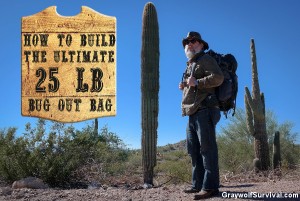
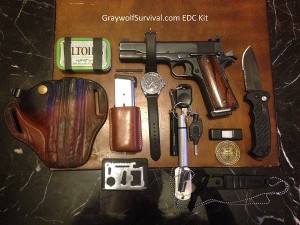
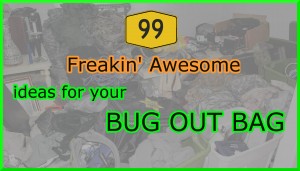
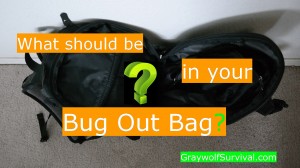

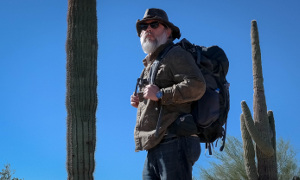
Gray,
I thought I posted a comment, but it seems to have disappeared. Sorry if this means you get two. :-/
The Twilight Zone episode you’re recalling was titled “The Shelter”. It aired in late September 1961 — just after the summer of tensions in the Berlin Crisis and just before the Cuban Missile Crisis the next year.
This time period had the mainstream culture thinking about shelters, preps and asking the questions (like you did) about what one does with unprepared neighbors.
Decades of ‘eased tensions’ have lulled most folks into complacency. The prepper questions aren’t mainstream anymore. Most have come to assume that Big Brother will be their savior, so their only duty is to support the consumer economy to the fullest of their ability. Sadly, this just means the prepared will have far more unprepared neighbors knocking on shelter doors.
The book idea sound interesting, I’d go with a zombie/Walking Dead scenario, but more in depth than they do on the AMC series (for instance, you never see them reloading bullets).
I really like the Walking Dead but I’d like to keep this series on more of a realistic footing. It will definitely be more in-depth and factual when it comes to something like reloading though. I really hate inconsistencies.
Great article; although a little light on the use of disinformation; or more simply put lies to deceive anyone. Which I use almost all the time; both regarding my preparedness, and my own supposed stupidity in letting people know only a small real part….Given a little knowledge may prove to be a very dangerous thing for supposed friends, IF anything occurs, and are led into a trap…..Cheers Allan Leigh
Always hide a lie in between 2 truths…… easier to believe that way!!